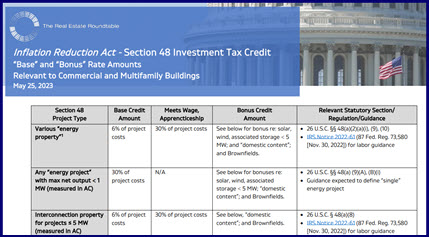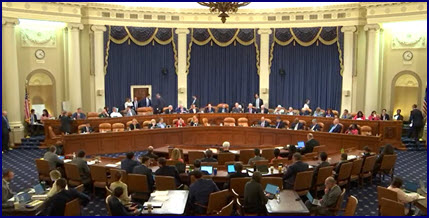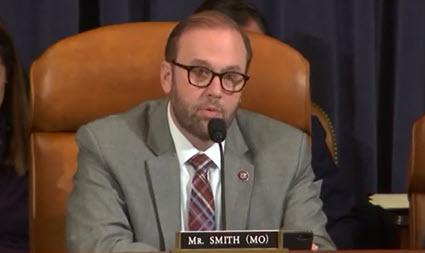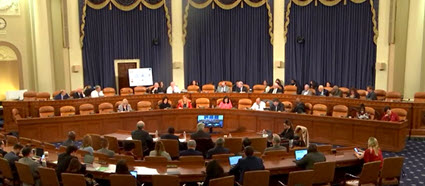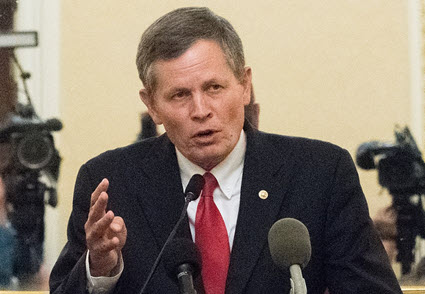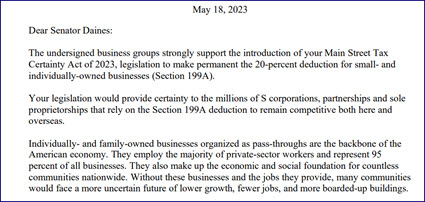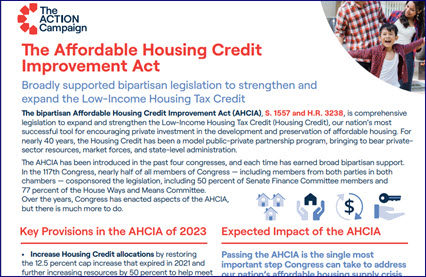
A group of eight Democratic Senators introduced legislation on July 11 that would prohibit for-profit owners of 50 or more single-family rental homes from taking depreciation or business interest expense deductions on their properties.
“Short-Sighted Proposal”
- Senate Banking Committee Chairman Senator Sherrod Brown (D-OH), one of the bill’s sponsors, said, “big investors funded by Wall Street buy up homes that could have gone to first-time homebuyers, then jack up rent, neglect repairs, and threaten families with eviction.” Similar concerns were expressed by several cosponsors: Senator Ron Wyden (D-OR), chair of the Senate Finance Committee, along with Sens. Elizabeth Warren (D-MA), Tina Smith (D-MN), Jeff Merkley (D-OR), Jack Reed (D-RI), John Fetterman (D-PA), and Tammy Baldwin (D-WI). (Senate Banking press release, July 11)
- Real Estate Roundtable President and CEO Jeffrey DeBoer, below, said, “Improving and expanding housing affordability is a goal we all share, and any illegal or unjust actions by landlords should not be tolerated. However, this legislation is a short-sighted proposal that will drive up housing costs for working Americans, reduce property values for existing homeowners, and further discourage new home construction.”

- “The bill deflects attention from the real, underlying causes contributing to high housing costs: inflation, labor shortages, and supply chain challenges; rising interest rates and tight credit conditions; NIMBY’ism, discriminatory zoning rules, and restrictive land-use policies; and insufficient investment in the low-income housing credit, to name just a few. Many of these factors are deep, structural challenges. Institutional investors are a convenient scapegoat and a distraction from the real work that must be done to address housing affordability,” DeBoer added.
- By denying basic business expense deductions, the Stop Predatory Investing Act would distort housing markets and create additional, restrictive policies that exacerbate the current supply/demand imbalance.
- Depreciation ensures that the cost of a capital investment is reflected in the measurement of income and recovered, for tax purposes, over the economic life of the investment. Depreciation deductions compensate property owners for the normal wear and tear that reduces the value of a structure over time. Interest expense deductions ensure that taxable income properly takes into account the cost of borrowing to invest in a trade or business.
- Depreciation and interest expense deductions are not “tax breaks” as suggested by the bill’s sponsors. (Senate Banking one-page summary)
House Tax Legislation
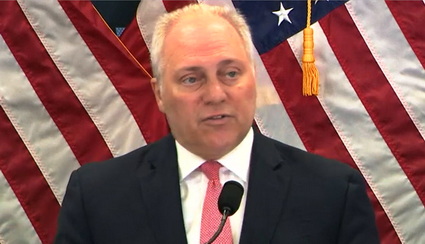
- Tax legislation advanced by the House Ways and Means Committee in June is unlikely to receive a vote before Congress starts its August recess.
- House Majority Leader Steve Scalise (R-LA), above, noted this week that the appropriations bills and reauthorization of the National Defense Authorization Act (NDAA), passed today in the House, are the chamber’s current priorities. “Getting the NDAA done and getting the appropriations bills are what are front and center right now. Then, we’ll really look forward to getting that economic agenda moving forward,” Scalise said. (Bloomberg Law, July 12)
- Republican Ways and Means Committee members last month approved their proposed tax legislative package along party lines, including measures on business interest deductibility, bonus depreciation, and opportunity zones. (Tax Notes, June 14 | Ways and Means Committee, June 13 and Roundtable Weekly, June 9)
Scalise added that Ways and Means Committee Chairman Jason Smith (R-MO) is still “working with other members on remaining issues with that bill.” (Bloomberg Law, July 12)
# # #

